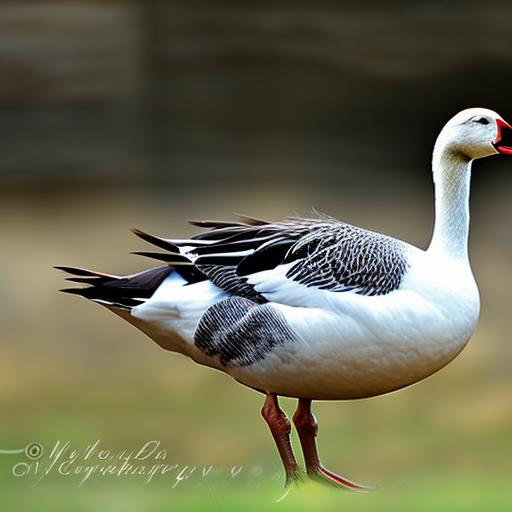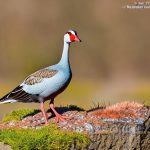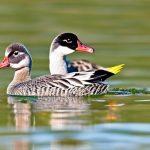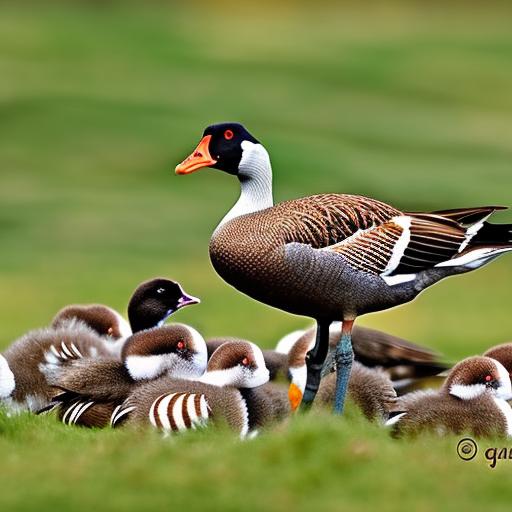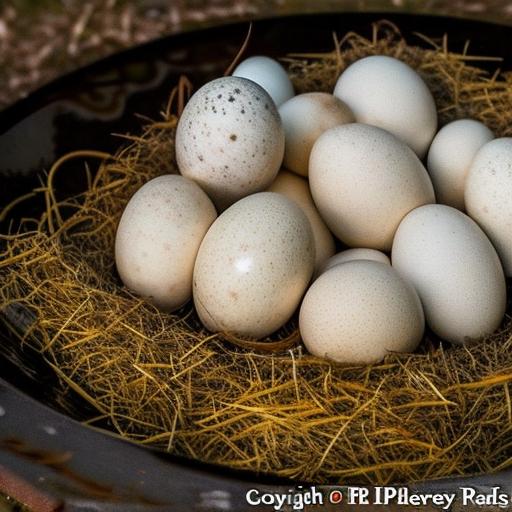Breeding geese for sale can be a profitable venture for those interested in poultry farming. Geese are in demand for their meat, eggs, and feathers, making them a valuable commodity in the market. Additionally, geese are relatively low-maintenance animals and can be bred in large numbers, making it a scalable business opportunity.
Breeding geese for sale can be a lucrative business for several reasons. Firstly, there is a growing demand for goose meat and eggs, especially during festive seasons and holidays. Geese are known for their flavorful meat and large eggs, which are highly sought after by consumers. Secondly, geese are hardy animals that can adapt to various climates and environments, making them suitable for farming in different regions. Lastly, geese have a high reproductive rate and can produce a large number of offspring, allowing breeders to quickly expand their flock and increase their profits.
Key Takeaways
- Breeding geese for sale can be a profitable business venture.
- Choosing the right breeds for your goose farm is crucial for success.
- Preparing your goose farm for breeding involves creating a suitable environment.
- Understanding the breeding cycle of geese is important for successful breeding.
- Feeding and nutrition play a vital role in the health and productivity of breeding geese.
Choosing the Right Breeds for Your Goose Farm
When starting a goose breeding business, it is important to choose the right breeds that will meet the demands of your target market. Factors to consider when choosing breeds include the purpose of breeding (meat or egg production), climate suitability, and market preferences.
Some popular breeds for breeding geese include:
1. Toulouse: Toulouse geese are known for their large size and excellent meat quality. They have a calm temperament and are easy to handle, making them suitable for both small-scale and commercial breeding operations.
2. Embden: Embden geese are one of the most popular breeds for commercial meat production. They have a white plumage and grow quickly, making them ideal for meat production.
3. Chinese: Chinese geese are known for their high egg production and excellent parenting skills. They are smaller in size compared to other breeds but make up for it with their prolific egg-laying abilities.
Preparing Your Goose Farm for Breeding
Before starting the breeding process, it is important to set up a suitable breeding area for your geese. This includes providing adequate space and shelter for the geese to mate and lay eggs.
Geese require a spacious area to roam and graze, so it is important to provide them with a large outdoor enclosure. The enclosure should be securely fenced to protect the geese from predators and should have access to fresh water for swimming and drinking.
In terms of shelter, geese require a simple yet sturdy structure that can protect them from extreme weather conditions. A basic goose house should have enough space for the geese to move around comfortably and should be well-ventilated to prevent respiratory issues.
Understanding the Breeding Cycle of Geese
To successfully breed geese, it is important to understand their mating process and egg-laying cycle.
Geese are monogamous animals, meaning they mate with the same partner for life. During the mating season, which typically occurs in the spring, male geese will display courtship behavior such as honking, flapping their wings, and chasing after females. Once a pair has formed, they will mate and the female will lay eggs.
The egg-laying process usually begins a few weeks after mating. Female geese will lay one egg every other day until they have laid a clutch of eggs, which can range from 5 to 12 eggs depending on the breed. After laying the eggs, the female will begin incubating them, which takes approximately 28 to 35 days.
Feeding and Nutrition for Breeding Geese
Proper nutrition is essential for breeding geese to ensure healthy offspring and optimal reproductive performance. Breeding geese have specific nutritional requirements that need to be met for successful breeding.
Breeding geese require a balanced diet that includes a combination of grains, greens, and protein sources. A commercial poultry feed formulated specifically for geese can be used as the base of their diet. Additionally, geese should have access to fresh water at all times, as they require it for digestion and to maintain overall health.
Feeding schedules for breeding geese can vary depending on the specific needs of the flock. Generally, geese should be fed twice a day, with the majority of their feed given in the morning and a smaller portion in the evening. It is important to monitor the geese’s body condition and adjust their feed intake accordingly to prevent obesity or malnutrition.
Health and Disease Management of Breeding Geese

Maintaining the health of breeding geese is crucial for successful breeding and the overall profitability of the business. Common health issues in breeding geese include respiratory infections, parasites, and nutritional deficiencies.
To prevent health issues, it is important to provide a clean and hygienic environment for the geese. Regular cleaning of their housing and providing clean water sources can help prevent the spread of diseases. Additionally, regular veterinary check-ups and vaccinations can help identify and prevent potential health problems.
In terms of disease management, it is important to quarantine new birds before introducing them to the flock to prevent the spread of diseases. Proper biosecurity measures should also be implemented, such as limiting access to the farm and disinfecting equipment and footwear.
Incubation and Hatching of Goose Eggs
Once the female goose has laid her clutch of eggs, they can be incubated to hatch goslings. There are two main methods of incubation: natural incubation by the female goose or artificial incubation using an incubator.
If you choose natural incubation, it is important to provide a suitable nesting area for the female goose. The nesting area should be secluded and protected from predators. The female will incubate the eggs by sitting on them for approximately 28 to 35 days until they hatch.
If you choose artificial incubation, you will need to invest in an incubator. The incubator should be set to the appropriate temperature and humidity levels for goose eggs. It is important to regularly monitor the eggs during the incubation period and make any necessary adjustments to ensure successful hatching.
Raising Goslings for Sale
Once the goslings have hatched, they will need proper care and attention to ensure their healthy growth and development. Goslings are delicate and require a warm and clean environment to thrive.
A brooder box or pen should be set up for the goslings, equipped with a heat source such as a heat lamp or brooder plate. The temperature in the brooder should be gradually reduced over time as the goslings grow and develop their feathers.
Goslings should be fed a balanced diet that is high in protein to support their rapid growth. A commercial poultry starter feed formulated specifically for goslings can be used as the base of their diet. Additionally, fresh water should be provided at all times, and it is important to monitor their feed intake and adjust accordingly.
Marketing and Selling Your Breeding Geese
Finding potential buyers for your breeding geese can be done through various channels. Local farmers markets, online classifieds, and social media platforms can be effective ways to reach potential customers. It is important to have clear and attractive advertisements that highlight the unique qualities of your geese, such as their breed, meat quality, or egg production.
When pricing your breeding geese, it is important to consider factors such as breed, age, and market demand. Researching the prices of similar geese in your area can help you determine a competitive price point. Additionally, offering discounts or package deals for bulk purchases can attract more customers.
Tips for Successful Breeding of Geese for Sale
To ensure successful breeding of geese for sale, it is important to follow best practices and avoid common mistakes. Some tips for successful breeding include:
– Providing a suitable breeding environment with adequate space and shelter
– Choosing the right breeds that meet market demands
– Maintaining proper nutrition and feeding schedules for breeding geese
– Implementing good biosecurity measures to prevent disease outbreaks
– Regularly monitoring the health of the geese and seeking veterinary care when needed
In conclusion, breeding geese for sale can be a profitable venture for those interested in poultry farming. By choosing the right breeds, providing a suitable breeding environment, understanding the breeding cycle, and implementing proper nutrition and health management practices, breeders can successfully raise geese for meat, eggs, and feathers. With proper marketing strategies and pricing, breeders can find potential buyers and establish a successful business in the geese breeding industry.
If you’re interested in breeding geese for sale, you may also find this article on poultrywizard.com helpful. It discusses the importance of providing a suitable chicken coop and nest box for your flock. A well-designed coop not only ensures the comfort and safety of your geese but also promotes healthy breeding and egg-laying. To learn more about creating the perfect coop environment, check out this informative article: https://poultrywizard.com/keeping-chickens/chicken-coop-nest-box/.
FAQs
What is breeding geese for sale?
Breeding geese for sale refers to the process of raising geese with the intention of selling them for various purposes, such as meat, eggs, or as pets.
What are the benefits of breeding geese for sale?
Breeding geese for sale can be a profitable business venture, as there is a demand for geese and their products. Additionally, geese are relatively easy to care for and can be raised in a variety of environments.
What are some common breeds of geese used for breeding?
Some common breeds of geese used for breeding include Toulouse, Embden, and Chinese geese. Each breed has its own unique characteristics and is suited for different purposes.
What is the lifespan of a domesticated goose?
The lifespan of a domesticated goose can vary depending on the breed and the care it receives. On average, geese can live up to 20 years.
What is the best environment for breeding geese?
Geese can be raised in a variety of environments, but they require access to water for swimming and drinking. They also need shelter from extreme weather conditions and predators.
What is the breeding season for geese?
The breeding season for geese typically occurs in the spring, with eggs being laid in late March or early April. Geese can lay up to 50 eggs per year.
What is the market demand for geese and their products?
There is a demand for geese and their products, such as meat and eggs, in various markets around the world. Additionally, geese are often kept as pets and used for ornamental purposes.
Meet Walter, the feathered-friend fanatic of Florida! Nestled in the sunshine state, Walter struts through life with his feathered companions, clucking his way to happiness. With a coop that’s fancier than a five-star hotel, he’s the Don Juan of the chicken world. When he’s not teaching his hens to do the cha-cha, you’ll find him in a heated debate with his prized rooster, Sir Clucks-a-Lot. Walter’s poultry passion is no yolk; he’s the sunny-side-up guy you never knew you needed in your flock of friends!

